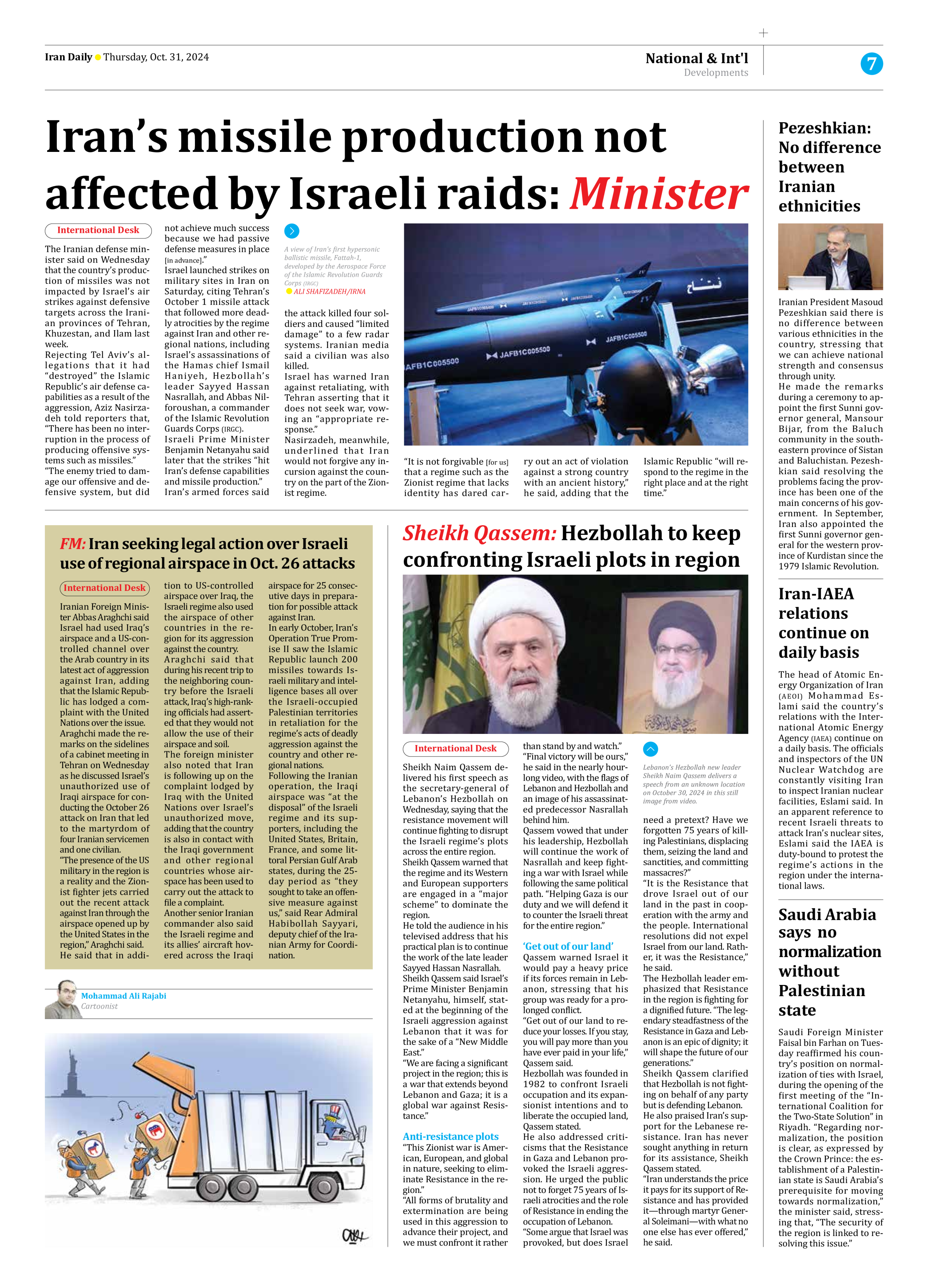
Iran’s missile production not affected by Israeli raids: Minister
The Iranian defense minister said on Wednesday that the country’s production of missiles was not impacted by Israel’s air strikes against defensive targets across the Iranian provinces of Tehran, Khuzestan, and Ilam last week.
Rejecting Tel Aviv’s allegations that it had “destroyed” the Islamic Republic’s air defense capabilities as a result of the aggression, Aziz Nasirzadeh told reporters that, “There has been no interruption in the process of producing offensive systems such as missiles.”
“The enemy tried to damage our offensive and defensive system, but did not achieve much success because we had passive defense measures in place [in advance].”
Israel launched strikes on military sites in Iran on Saturday, citing Tehran’s October 1 missile attack that followed more deadly atrocities by the regime against Iran and other regional nations, including Israel’s assassinations of the Hamas chief Ismail Haniyeh, Hezbollah’s leader Sayyed Hassan Nasrallah, and Abbas Nilforoushan, a commander of the Islamic Revolution Guards Corps (IRGC).
Israeli Prime Minister Benjamin Netanyahu said later that the strikes “hit Iran’s defense capabilities and missile production.”
Iran’s armed forces said the attack killed four soldiers and caused “limited damage” to a few radar systems. Iranian media said a civilian was also killed.
Israel has warned Iran against retaliating, with Tehran asserting that it does not seek war, vowing an “appropriate response.”
Nasirzadeh, meanwhile, underlined that Iran would not forgive any incursion against the country on the part of the Zionist regime.
“It is not forgivable [for us] that a regime such as the Zionist regime that lacks identity has dared carry out an act of violation against a strong country with an ancient history,” he said, adding that the Islamic Republic “will respond to the regime in the right place and at the right time.”







